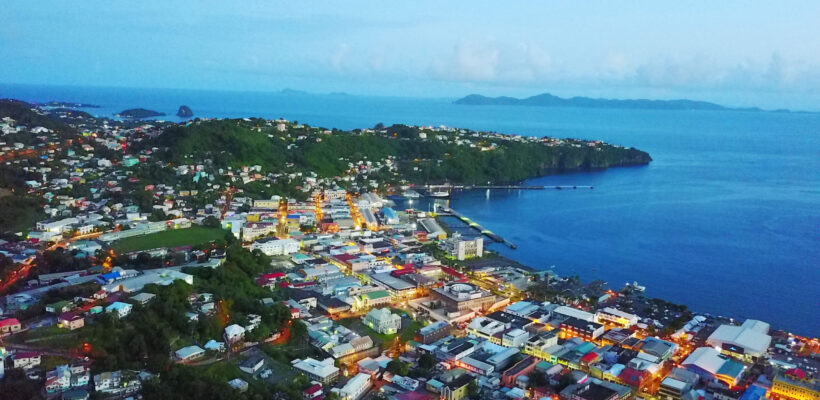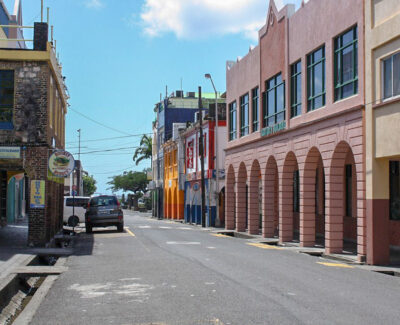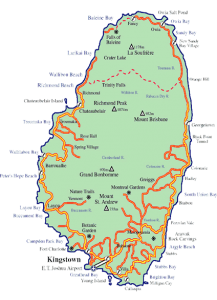Our Investment Facilitation Services (IFS) department is the lifeline of Invest SVG. It is integral to current investors feeling completely satisfied with the services and advantages that we offer, as they become further immersed in the development of St. Vincent and the Grenadines.
Investment Facilitation Services

The Investment Facilitation Manager leads the thrust in this regard and works closely with both current and potential investors. This department facilitates all aspects of business development – from the local entrepreneur in need of guidance to the multi-million dollar foreign investors seeking sector tours, assistance in learning the local culture or step-by-step assistance in starting a business in St. Vincent and the Grenadines.
Business planning & strategy
Our clients are often surprised by the possibilities we present to them; by thinking outside the box we present exciting new ventures:
St Vincent and the Grenadines has several highly established sectors that investors may partake in, which include (but are not limited to):
- Tourism Development.
- Light Manufacturing.
- Renewable Energy.
- International Financial Services.
- Information and Communication Technology (ICT).
- Creative Industry.
- Agricultural Processing.

For the most up to date financial information please see the official government website of St. Vincent and the Grenadines here.
Workforce
Labor force: 57,520
GDP (official exchange rate):
$785 million (2017 est.)
GDP (purchasing power parity):
$1.265 billion (2017 est.)
$1.256 billion (2016 est.)
$1.246 billion (2015 est.)
GDP – real growth rate:
0.7% (2017 est.)
0.8% (2016 est.)
0.8% (2015 est.)
GDP – per capita:
$11,500 (2017 est.)
$11,400 (2016 est.)
$11,300 (2015 est.)
Gross national saving:
12.1% of GDP (2017 est.)
10.3% of GDP (2016 est.)
10.4% of GDP (2015 est.)
Agriculture – products:
bananas, coconuts, sweet potatoes, spices; small numbers of cattle, sheep, pigs, goats; fish
Industries:
tourism; food processing, cement, furniture, clothing, starch
Industrial production growth rate:
2.5% (2017 est.)
St. Vincent and the Grenadines, known as Hairoun (“Land of the Blessed”), by the first inhabited group of Meso-Indians, Ciboneys, is an archipelagic state in the Eastern Caribbean, containing of a main land, St. Vincent, and a chain of 32 islands and cays, the Grenadines, of which only seven are inhabited – Bequia, Mustique, Canouan, Mayreau, Union Island, Palm Island and Petit St. Vincent. St. Vincent and the Grenadines, once a plantation economy, declared their independence, from the United Kingdom, on the 27th of October 1979.
St. Vincent and the Grenadines is a mountainous Islands, with an active volcano called La Soufriere. The average yearly temperature is 27 ℃.
The capital of St. Vincent and the Grenadines, Kingstown, is the island’s center of agricultural industries, tourists entry port, and the island’s commercial hub. Exports include bananas, coconuts and arrowroot. Not too far away from the capital, you can find the major beach resorts; Villa Beach and Indian Bay.
Most Vincentians are African descendants, brought in to work on the island plantations, while other ethnic groups include East Indians and Syrians, with a growing Chinese population and a minority of a mixed race.
The official language is English, while many speak the dialect “Vincentian Creole”, in informal situations. The religions practiced on the Island include; Anglican, Methodist, Roman Catholic, Seventh-Day Adventist, Hindu and other Protestant Denominations.
St. Vincent has a high rate of emigration, due to medium-high unemployment and under-employment rates, but continues their stable democratic society, welcoming visitors from around the world.
St. Vincent & the Grenadines consist of a tropical marine climate, characterized by a marked dry season, mid-December to mid-May, whereby abnormal atmospheric pressure results in dryness and drought conditions in the various coastal areas and the Grenadines. The marked rainy season, mid-May to mid December, is defined by various tropical waves, including depressions and hurricanes, causing perennial threats to the atmospherics of the region. Temperatures average 27℃, all year round, due to moderated influence of the ever-present trade winds.
The independent and sound judicial system, of St. Vincent and the Grenadines, enables a framework for good governance, and a secure business environment. The judiciary is rooted in the British Common Law. There are 11 courts in three magisterial districts, the High Court and the Eastern Caribbean Supreme Court, known for efficiency, transparency and reliability.
Although St. Vincent and the Grenadines is a member of the Caribbean Court of Justice (CCJ), the final appellate authority resides in the Privy Council, housed in the United Kingdom.
St. Vincent and the Grenadines is a Commonwealth and founding member of the Organization of Eastern Caribbean States (OECS), indicating a common currency and some common institutions, such as the civil aviation and judiciary, among members, thereby becoming a single economic and financial space. St. Vincent and the Grenadines also partnered with the Caribbean Community (CARICOM) and the CARICOM Single Market.
Multilateral Trade Agreements;
✔ OECS-EU
✔ CARICOM-CSME
✔ Caribbean Basin Initiative (CBI)
✔ EU-ACP Cotonou – CARIFORUM
✔ WTO
The OECS Treaty makes the creation of a single financial and economic space possible, within goods, people and capital move freely, monetary and fiscal policies are harmonized and countries continue to develop a common approach to trade, health, education and environment, including the critical development of agriculture, tourism and energy.
The Trade Policy Unit works with its partners to oversee and shape the OECS binding trade arrangements that guarantee the terms under which goods and services are traded and to ensure good governance, which can be bilateral, regional or multilateral.
The CSME is a natural progression of CARICOM, seeking to facilitate the free movement of goods, capital and labour within the relevant Caribbean nations. St. Vincent and the Grenadines, also offers bilateral trade accords with the Dominican Republic, Colombia, Costa Rica, Cuba and Venezuela
GDP Growth & analysis
The Gross Domestic Product (GDP) in St Vincent And The Grenadines was worth 0.81 billion US dollars in 2018. GDP in St Vincent And The Grenadines averaged 0.29 USD Billion from 1960 until 2018, reaching an all time high of 0.81 USD Billion in 2018 and a record low of 0.01 USD Billion in 1961
Currency Information
The St. Vincent and the Grenadines’ currency is the Eastern Caribbean Dollar (EC$). The Eastern Caribbean Dollar is regional currency shared among the Eastern Caribbean Currency Union (ECCU) members, issued by the Eastern Caribbean Central Bank (ECCB), which manages the monetary policy, regulates and supervises commercial banking activities in each of its member
countries. the ECCB has been able to keep the EC$ fixed at EC$2.7=US $1
St. Vincent and the Grenadines trades according to the trading-requirements of each country that they trade to, on an international basis, if not in US$. Domestically, St. Vincent and the Grenadines only trades in EC$.

